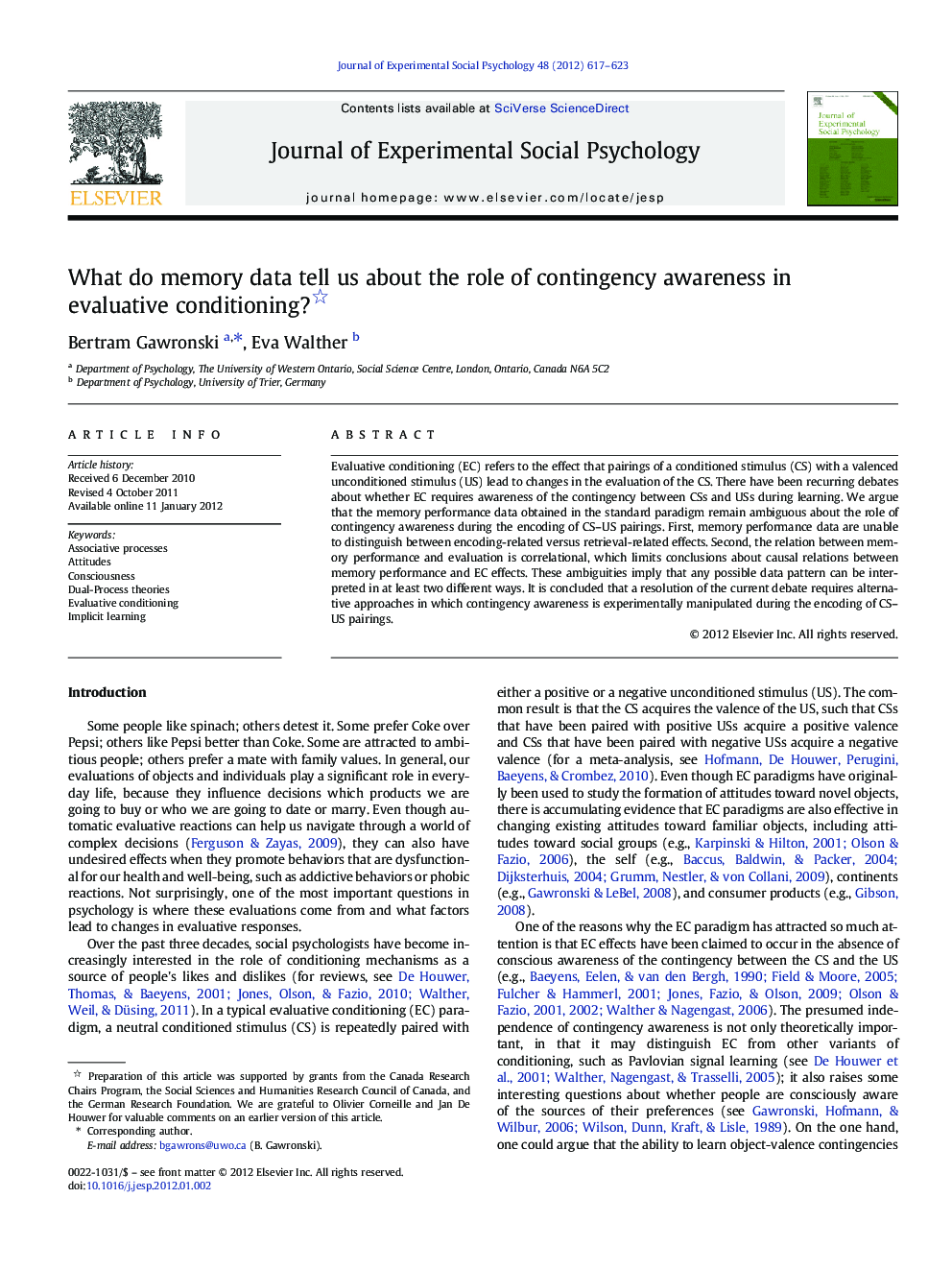| Article ID | Journal | Published Year | Pages | File Type |
|---|---|---|---|---|
| 948397 | Journal of Experimental Social Psychology | 2012 | 7 Pages |
Evaluative conditioning (EC) refers to the effect that pairings of a conditioned stimulus (CS) with a valenced unconditioned stimulus (US) lead to changes in the evaluation of the CS. There have been recurring debates about whether EC requires awareness of the contingency between CSs and USs during learning. We argue that the memory performance data obtained in the standard paradigm remain ambiguous about the role of contingency awareness during the encoding of CS–US pairings. First, memory performance data are unable to distinguish between encoding-related versus retrieval-related effects. Second, the relation between memory performance and evaluation is correlational, which limits conclusions about causal relations between memory performance and EC effects. These ambiguities imply that any possible data pattern can be interpreted in at least two different ways. It is concluded that a resolution of the current debate requires alternative approaches in which contingency awareness is experimentally manipulated during the encoding of CS–US pairings.
